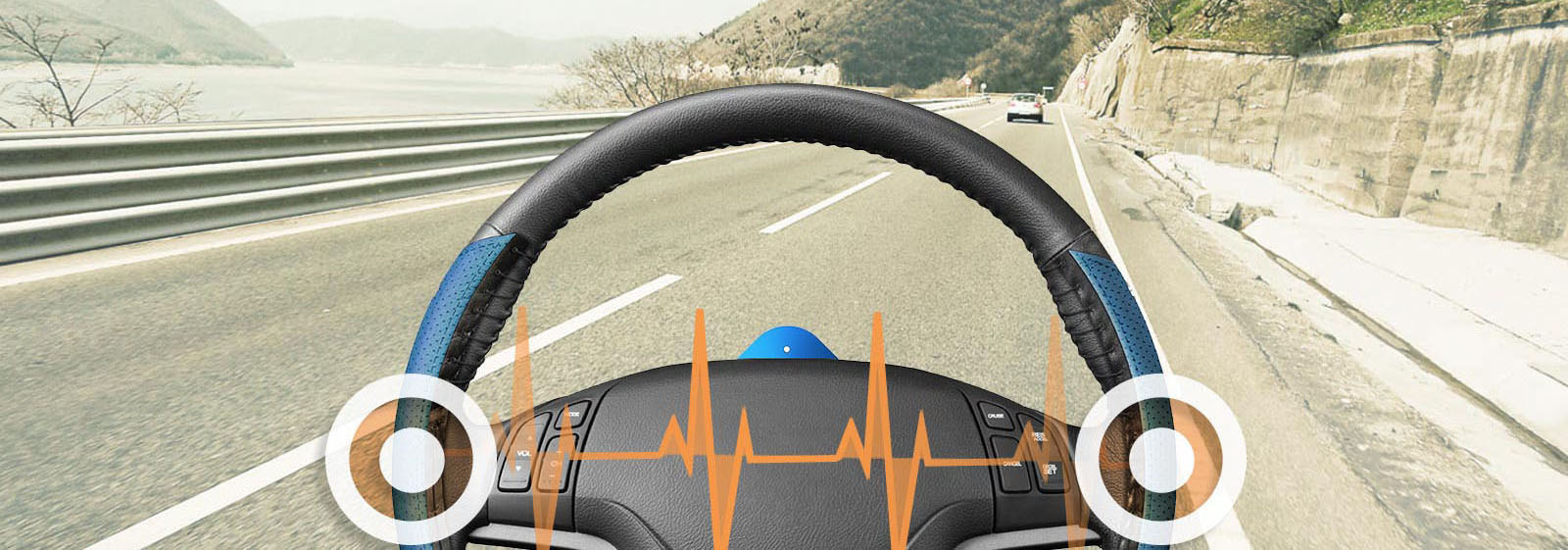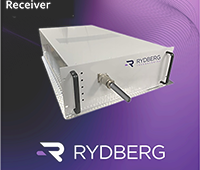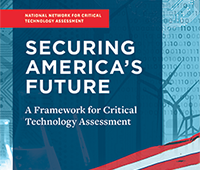
Electrocardiograms (ECGs) are typically used by medical professionals to test for problems with the electrical activity of the heart.
But Portugal-based company CardioWheel Technologies is utilizing the ECG for a completely different purpose—to keep semi-truck drivers safe and alert.
CardioWheel is an advanced driver assistance system that acquires ECG from the driver’s hands, via a custom steering wheel cover, to continuously detect drowsiness and cardiac health problems. It also performs biometric identity recognition to assure the person driving the vehicle is who it is supposed to be.
These data, in combination with information collected from different sources such as GPS, is used to provide the driver with real-time alerts, and disseminate such information to a fleet management system.
“The ECG is a tremendously rich source of information, providing insights into a person’s health, emotional status, and even identity recognition (like a fingerprint),” said Andre Lourenço, CardioWheel’s Principal Investigator of Technology, in an interview with R&D Magazine. “Our system enables capture of such a rich signal in a non-intrusive way; the user just need to drive with both hands on the steering wheel.”
How it works
CardioWheel’s custom steering wheel cover is equipped with special conductive elements that can capture the electrical impulses generated by the heart. After the ECG is captured, the signal is processed locally, making use of advanced signal processing and machine learning algorithms to extract information related to drowsiness and fatigue.
An alert is immediately issued to the driver if fatigue has been detected. For fleets of vehicles, a dashboard aggregating geographically referenced fatigue information is available to managers.
The goal is to lower the risk of accidents and fatalities on the road due to the driver’s ill condition or inattention, said Lourenço.
CardioWheel also can connect with Mobileye and Geotab technologies to further enhance road safety.
The Mobileye collision avoidance system helps drivers by constantly monitoring the road in front of the vehicle. It identifies potentially dangerous situations, and provides audio and visual alerts to assist the driver in preventing or mitigating a collision.
An updated version, known as the Mobileye Shield system, expands upon the same technology, using up to four individual sensors for improved blind spot detection in urban environments.
Geotab is a fleet-tracking platform, and CardioWheel can connect with Geotab GO7, a small form-factor device that plugs directly into the vehicle’s OBDII port, or another port via an adapter.
The system will also be able to integrate with other their-party devices, using CANBUS, BLE, or other interfaces, according to Lourenço.
Connecting CardioWheel with other advanced vehicle safety technologies is key, said Lourenço.
“This makes it one of the most complete driver monitoring solutions, since it monitors the driver using CardioWheel, the road using Mobileye and the car using Geotab,” he said.
CardioWheel is currently marketed mostly to truck drivers and cargo transportation companies as an aftermarket steering wheel cover. However, they hope to eventually also integrate CardioWheel into new vehicles before they are sold and expand their custom-base to the everyday driving customer, said Lourenço.
“The emergence of autonomous cars is pushing for technologies that will help humans in the loop,” he said. “Our technology answers to this challenge, enabling drivers to be aware of their real conditions, quantifying their drowsiness level and detecting abnormal cardiac problems. Our ambition is to see our technology on every vehicle.”




